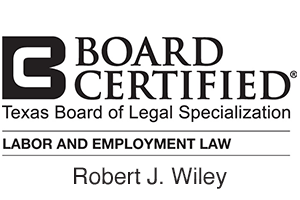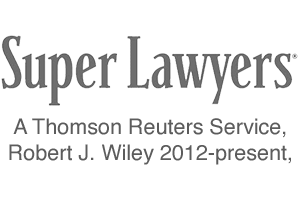in Austin, Texas
Transitioning in the Workplace
Austin Lawyers Experienced in Gender Identity Discrimination Claims
Neither state nor federal laws explicitly protect transgender workers, even though the statistics show that they face dispiriting trends in terms of receiving employment opportunities. Transgender discrimination exists when a transgender employee is treated adversely due to their gender identity. If you are subjected to discrimination or harassed in connection with transitioning in the workplace, the experienced Austin sexual orientation discrimination attorneys at Austin Employment Lawyers, P.C. may be able to help.
Transitioning in the Workplace
The Equal Employment Opportunity Commission (EEOC), which enforces Title VII, has issued guidance that discriminating against transgender people based on their gender identity is a type of sex discrimination. For example, developing and enforcing certain bathroom restrictions for a transgender employee counts as discrimination.
In one federal case, an employee who was transitioning needed to use a single-person restroom at work. While it was out of order, she used a woman’s bathroom and was confronted by her supervisor because she had not undergone full gender reassignment surgery, among other things. The EEOC concluded that nothing in Title VII makes a medical procedure a prerequisite for equal opportunities for transgender people.
In Texas, the cities of Austin, Dallas, Fort Worth, and Plano, as well as Dallas County, have passed ordinances that explicitly include gender identity as a protected class. However, transgender workers outside the cities that have ordinances protecting them should be aware that different courts take different approaches to the application of Title VII in gender identity discrimination cases. This area of the law is evolving quickly, and there may be conflicts depending on where the case is pursued. The EEOC has made clear that it will pursue cases when it finds evidence of discrimination against a transgender employee. On the other hand, the Department of Justice has argued in court that federal laws against sex discrimination in employment do not protect people from termination based on being LGBTQ.
The issue of transgender rights in the workplace will be decided in courts, and it has been successfully argued to judges that gender identity is a type of prohibited sex discrimination. If you are transitioning in the workplace, you may have a number of legal concerns with regard to your employment, including your rights with regard to bathrooms, pronoun use, dress, and grooming. Unfortunately, the law is not clear-cut on the extent to which you are protected in these situations. Therefore, you should consult an knowledgeable attorney to discuss these matters.
What may be of particular importance to a Title VII case in court is showing that you were treated differently due to gender or sex-related traits or gender stereotyping while you were transitioning. This could include your boss telling you that you need to use a single-occupancy bathroom or dress in a more “feminine” or “masculine” way. It could also include your boss requiring you to bring in medical documentation related to your gender. It could also include your supervisor repeatedly failing to use the pronoun that you request or refusing to do so.
Furthermore, your employer is not supposed to arbitrarily enforce a dress code to target you because you are transgender or transitioning. For example, your employer should not selectively enforce a workplace policy about wearing jewelry against you, while looking the other way when other men and women wear jewelry to work.
Harassment is a form of discrimination that can be perpetrated by supervisors, managers, coworkers, customers, and clients. Your employer should protect you from sex-based harassment related to your transition, including a hostile work environment. For example, suppose that you mention that you are transitioning, and your boss makes a joke and your coworkers start sending you graphic emails and cruel memes about your transition. You tell HR, but instead of taking steps to correct the situation, they terminate you soon afterward as not being a fit with the culture of the company. In that case, you may have a Title VII claim for harassment and wrongful termination.
Whether you are entitled to the reasonable accommodation of unpaid job-protected leave for sex reassignment surgery has not yet been determined under the Americans with Disabilities Act (ADA). The ADA explicitly excludes gender identity disorders from its protection, but gender dysphoria, the clinically significant distress that some transgender people experience when they identify with a sex other than the sex assigned at birth, has been recognized by a federal court outside Texas as a disability. Similarly, it is not clear yet how much protection courts will provide under the Family and Medical Leave Act (FMLA) to eligible employees undergoing sex reassignment surgery in Texas.
Contact a Gender Identity Discrimination Attorney in the Austin Area
If you face discrimination while transitioning in the workplace in Texas, you should consult an employment discrimination lawyer. This is a challenging and evolving area of law, so legal counsel is critical. Austin Employment Lawyers, P.C. represents employees in cities such as Austin, Georgetown, Round Rock, Cedar Park, Pflugerville, Leander, Del Valle, Kyle, San Marcos, San Antonio, New Braunfels, and Fredericksburg. Call us at (512) 271-5527 or use our online form to set up an appointment with an Austin attorney.







